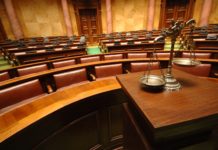Legal professional privilege: lawyer & non-lawyer RMAs
Federal Court (Full Court). Does legal professional privilege apply in the context of dealings with the Department or the Tribunal? If so, does the privilege apply only if the representative acts in his/her capacity as a lawyer? If so, is it relevant whether the representative identifies him/herself as a lawyer? Does the privilege apply if the representative is a non-lawyer RMA? Will the "Deregulation" legislation change the answer to any of those questions?
Modifying behaviour: ss 5J(3) and 5L
Federal Court (Full Court). Do the expressions in ss 5L(c)(ii) and 5J(3)(a) of the Migration Act 1958 (Cth) necessarily encompass the same "characteristic"? Assuming that IAA accepted that the Appellant's interest for music and dance was "a characteristic that [was] fundamental to [his] identity", was it open to IAA to find that Appellant could avoid a real chance of persecution by carrying out his activities underground and with caution? Could the IAA have "decided that the appellant’s expression of his interest in music and dance “underground” would not conflict with a characteristic which was fundamental to his identity ... without having made a finding concerning the existence and nature of that characteristic"?
Must AAT be a party? Self-representation & being in detention = denial of procedural...
Federal Court (Full Court). If a party applies for judicial review of a decision of the AAT but does not join the AAT as a party to the proceedings, is that necessarily fatal to those proceedings? Does the bare fact that a non-citizen is self-represented at the Tribunal and in immigration detention during the AAT hearing amount to a denial of procedural fairness?
Privilege against self-incrimination
Federal Court. Is the privilege against self-incrimination a fundamental common law right or merely a rule of evidence only available in court proceedings? Do the AAT Act or the Migration Act give merits review applicants the privilege against self-incrimination? Is AAT required to warn self-represented applicants about the invocation of the privilege? We summarise that and several other questions.
Interplay between ss 473DD(a) and (b)
High Court. Should the circumstances in ss 473DD(b)(i) and (ii) be factored into s 473DD(a)? Is the IAA required to consider the conditions in ss 473DD(b)(i) and (ii) before considering s 473DD(a)? If not, would it at least be efficient and prudent for the IAA to consider first the conditions in ss 473DD(b)(i) and (ii) and only then consider s 473DD(a) if one or both of those conditions is satisfied?
AAT bound to investigate & remit?
Federal Court. Delegate refused to revoke mandatory cancellation of judicial review Respondent's visa under s 501CA(4). AAT remitted the matter to the Minister on the basis that it was "bound to obtain further information and was precluded from making a decision unless and until that further information had been obtained". Was AAT subject to an investigation duty? Was AAT bound to remit the matter to the Minister?
Double counting?
Federal Court. AAT was required to consider under s 501CA(4) whether to revoke the mandatory cancellation of the judicial review time extension Applicant's visa and to take into account the protection of the Australian community, as mandated by Direction 79. Para 14.1 of that direction required decision makers to consider the "impact of a decision not to revoke on members of the Australian community, including victims of the non-citizen's criminal behaviour". Did the AAT engage in impermissible double counting when it considered the effect of the Applicant's offending both in the context of the protection of the Australian community and in the context of the impact on the victims of the Applicant's offending?
Choosing national interests factors subject to reasonableness?
Federal Court. Was the Minister's choice of what factors to take into account for the purposes of assessing the national interest under s 501BA(2)(b)...
Deemed to have been born in Australia?
Federal Court. If the Minister for Home Affairs makes a citizenship decision which is overturned by the AAT, can the Minister for Immigration bring judicial review proceedings? Section 16(2) of the Australian Citizenship Act 2007 provides that a person born overseas on or after 26 Jan 1949 is eligible to become an Australian citizen if, among other things, "a parent of the person was an Australian citizen at the time of the birth". If a person is born overseas to non-Australian biological parents and is later adopted by individuals who were Australian citizens at the time of that person's birth, is that person deemed to have been born to Australian parents for the purposes of s 16(2)?
Demeanour
High Court. Delegate: interviewed Appellant in person and audio recorded it; was convinced, based on demeanour, that Appellant's evidence during interview was plausible and...




















